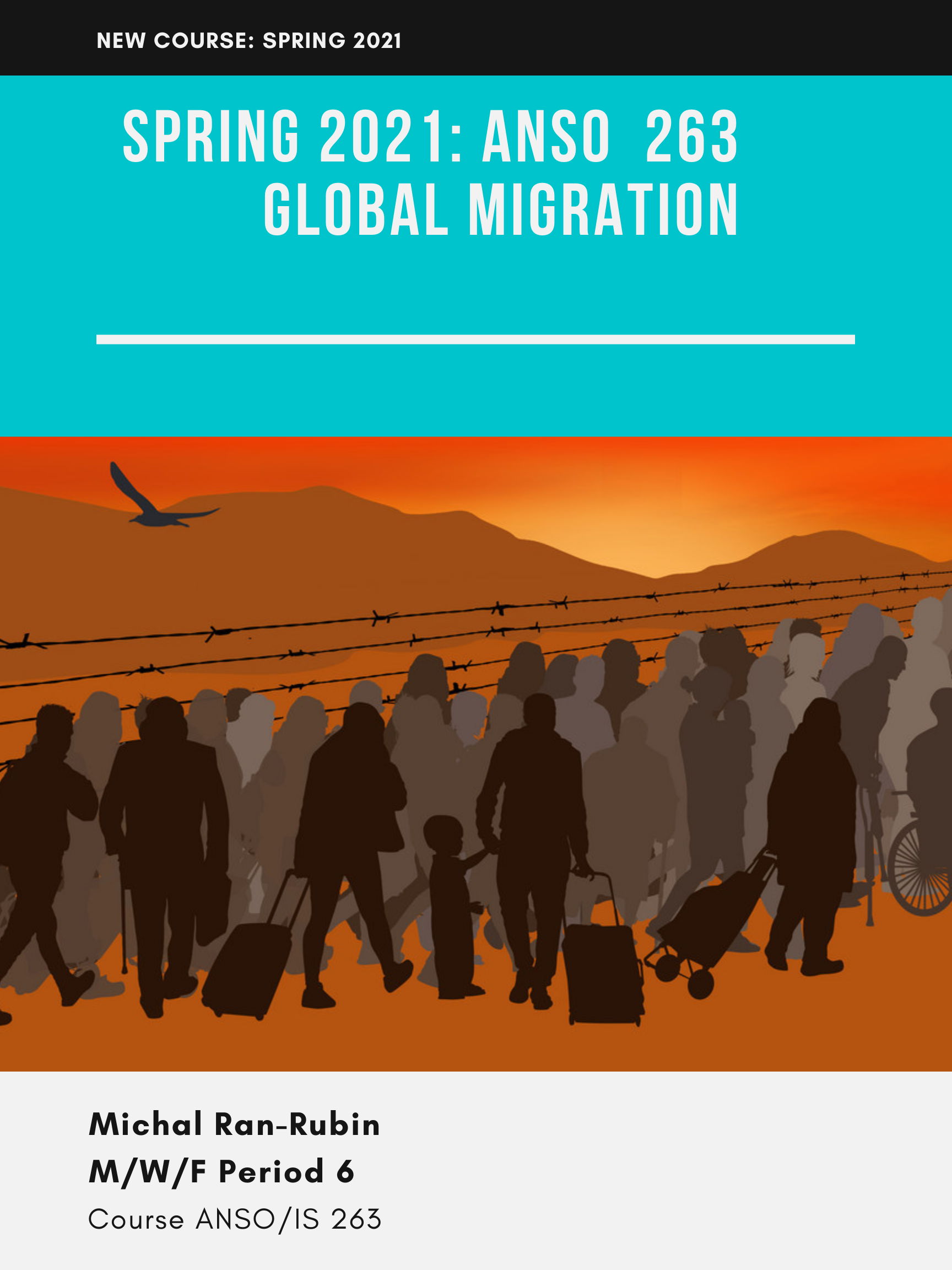In recent years, profound changes in the global economy, climate change, and transnational politics have culminated in large movements of people in almost every region. This course examines how people experience displacement, migration, and statelessness; how home, community and belonging are reconstituted both in exile and through the making of diaspora communities. We will also pursue related questions about how international laws, national policies, and practices of social exclusion or inclusion influence the broader context of migration. How do population movements affect politics at the international, regional, and local levels – and vice versa? In what ways are relations of kinship, family, and gender being reformulated in response to transnational movements? Reading materials will include ethnographic studies of migrant and diaspora communities, policy reports on the international refugee regime, literary works produced by migrant authors, and a sampling of mainstream media reporting on immigration in the US and around the globe.
